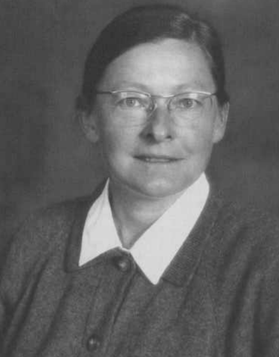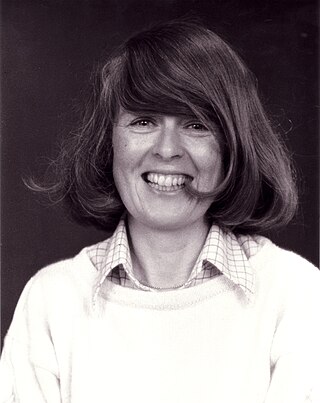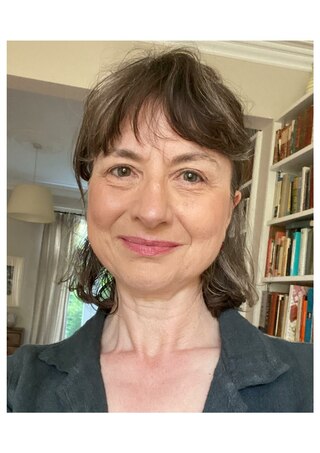Related Research Articles

Elizabeth Bayard French, also known as Lisa French, was a British archaeologist and academic, specialising in Mycenaean Greece, especially pottery and terracotta figurines and the site of Mycenae. She was the first woman to serve as director of the British School at Athens (BSA).

Barbara Frances Wootton, Baroness Wootton of Abinger, CH was a British sociologist and criminologist. She was the first of four women to be appointed as a life peer, entitled to serve in the House of Lords, under the Life Peerages Act 1958, after the names of the holders of the first 14 life peerages to be created had been announced on 24 July. She was President of the British Sociological Association from 1959 to 1964.

Dame Louisa Innes Lumsden was a Scottish pioneer of female education. Lumsden was one of the first five students Hitchen College, later Girton College, Cambridge in 1869 and one of the first three women to pass the Tripos exam in 1873. She returned as the first female resident and tutor to Girton in 1873.

Katharine Jex-Blake, was an English classical scholar, and the eighth Mistress of Girton College, Cambridge.

Sidnie Milana MantonFLS FRS was an influential British zoologist. She is known for making advances in the field of functional morphology. She is regarded as being one of the most outstanding zoologists of the twentieth century.
Veronica Elizabeth Marian Forrest-Thomson was a poet and a critical theorist brought up in Scotland. Her 1978 study Poetic Artifice: A Theory of Twentieth-Century Poetry was reissued in 2016.

Susan Jane Smith is a British geographer and academic. She will become President of the British Academy in 2025. She was mistress of Girton College, Cambridge from 2009 to 2022. Smith previously held the Ogilvie Chair of Geography at the University of Edinburgh from 1990 to 2004 and until 2009 was a professor of geography at Durham University, where she played a key role in establishing the Institute of Advanced Study. On 1 October 2011, she was conferred the title of Honorary Professor of Social and Economic Geography in the Department of Geography at the University of Cambridge for five years, which was renewed until 2021.

Alice Louisa Theodora Zimmern was an English writer, translator and suffragist. Her books made a significant contribution to debate on the education and rights of women.

Elizabeth Hilda Lockhart Lorimer was a British classical scholar who spent her career at Oxford University. Her best known work was in the field of Homeric archaeology and ancient Greece, but she also visited and published on Turkey, Albania and the area that later became Yugoslavia. She took the position of vice-principal of Somerville College during the Second World War.

Joyce Maire Reynolds was a British classicist and academic, specialising in Roman historical epigraphy. She was an honorary fellow of Newnham College, Cambridge. She dedicated her life to the study and teaching of Classics and was first woman to be awarded the Kenyon medal by the British Academy. Among Reynolds' most significant publications were texts from the city of Aphrodisias, including letters between Aphrodisian and Roman authorities.
Margaret Alford was an English classicist and pioneering academic who achieved a First at Cambridge University in 1887, a time when women were not formally awarded degrees. She spent more than two decades teaching at schools and universities, while publishing and editing many books. She specialised in Latin prose, particularly the works of Livy, Tacitus and Cicero, an area almost entirely dominated by male scholars.

Caroline Penrose Bammel,, also known as Caroline Hammond Bammel, was a Cornish ecclesiastical historian, classicist, and academic, who specialised in the history of early Christianity. She was a Fellow of Girton College, Cambridge, from 1968 to 1995, and Reader in Early Church History at the University of Cambridge from 1992 to 1995.
Margaret Eleanor Grimshaw (1905–1990) was a mathematician and academic at the University of Cambridge.
Elizabeth Welsh was a classicist and the second longest running Mistress of Girton College, Cambridge.

Gillian Lesley "Jill" Mann, FBA, is a scholar known for her work on medieval literature, especially on Middle English and Medieval Latin.
Carol Margaret Handley was a British educator who was headmistress of Camden School for Girls (1971–1985) and president of the Classical Association (1996–1997). Handley was later a classics tutor at Wolfson College, Cambridge. Handley is known for her longstanding advocacy for Classics education in schools and universities, as well as for her work on teaching and examination materials for the Joint Association of Classical Teachers and for the University of Cambridge.

Emily Joanna Gowers, is a British classical scholar. She is Professor of Latin Literature at the University of Cambridge and a Fellow of St John's College, Cambridge. She is an expert on Horace, Augustan literature, and the history of food in the Roman world.
Nan Dunbar was Fellow and Tutor in Classics at Somerville College, Oxford. She is known for her 1995 edition of Aristophanes' The Birds.
Kathleen Teresa Blake Butler was an academic specialising in Modern Languages.

Marjorie Hollond born Marjarie Tappan was an American born British economist and academic administrator.
References
- 1 2 3 4 5 6 7 8 "Alison Duke". The Times. 23 November 2005. Retrieved 15 December 2021.
- 1 2 3 4 5 6 "Alison Duke MA - 22 July 1915 - 6 November 2005". Girton College. University of Cambridge. 2010. Archived from the original on 23 March 2012. Retrieved 15 December 2021.
- ↑ "Alison Duke MA - 22 July 1915 - 6 November 2005". girton.cam.ac.uk. Retrieved 26 October 2024.
- ↑ Falconer, John (2022). Letters from Helfenberg: A Family Correspondence between Dresden and Cambridge, and beyond, 1909 - 1948. California, USA: Matador. p. 58. ISBN 9781803132044.
- ↑ "Alison Duke (1915-2005), Classicist". National Portrait Gallery. Retrieved 15 December 2021.
- 1 2 "Personal Papers of Alison Duke, 1875 - 2005". archivesearch.lib.cam.ac.uk. ArchiveSearch. Retrieved 9 November 2024.
- ↑ "Alison Duke MA - 22 July 1915 - 6 November 2005". girton.cam.ac.uk. Retrieved 26 October 2024.
- ↑ "Personal Papers of Norah Christina Jolliffe". Archives Hub. Girton College Archives, University of Cambridge. Retrieved 15 December 2021.
The Jolliffe papers were deposited in Girton College Archive by Alison Duke, who had taken over as Director of Studies in Classics in 1951 and kept them in her College room. Miss Duke assisted in the identification and interpretation of some of the papers.
- 1 2 3 "Girton Community". Girton College. University of Cambridge. Retrieved 15 December 2021.
Another distinctive career was that of classicist Alison Duke (1915–2005), Girton's first Senior Tutor. Appointed Acting Assistant Tutor in 1946, she too was a remarkably long-serving Girton Fellow. For close to six decades, she held the posts of Tutor, Fellow, Lecturer, Director of Studies, and Life Fellow as well as officially becoming the first Senior Tutor in 1968. She was one of the architects of the modern tutorial system in the College.